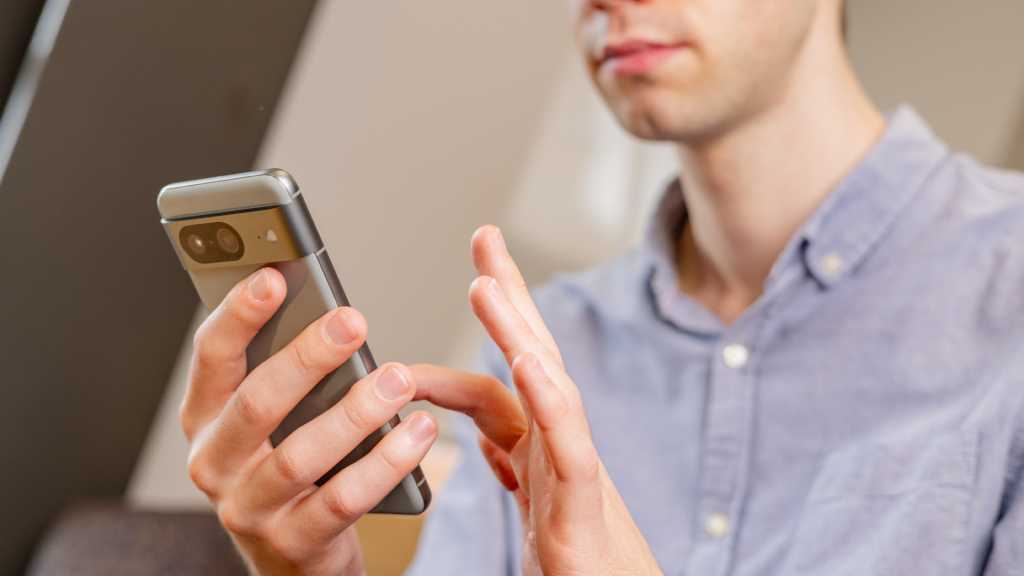As Tech Advisor’s Mobile Editor, I write about smartphones almost every single day.
And while I’m not shy in voicing my opinions, I try to keep my articles as objective as possible, focusing on the features that will affect almost everyone who uses the device(s) in question.
That’s pretty much impossible when it comes to third-party apps, though. The apps you choose to download to your device represent a very personal decision that’s influenced by all sorts of different factors. I’m not about to tell you that you need a particular app, or that it will change your life.
However, there are a few apps that I use on a regular basis that I don’t see discussed often online. Given the positive impact they’ve had on my life, I wanted to share them with you, especially as they’re only a quick click away – in the Apple App Store or Google Play Store. All apps are free unless otherwise specified.
Disclaimer: This article is not sponsored, and none of the apps have asked to be included. I just really like using them and think you might, too.
PayPal
Okay, you’ve probably heard of this one. Many retailers across the internet allow you to pay for things using PayPal, but have you ever used the app?
I find it to be the easiest way to send and request money from friends and family, regardless of where they bank. To find someone, you only need their name, username, email address or mobile number – no sort code or account number is required.
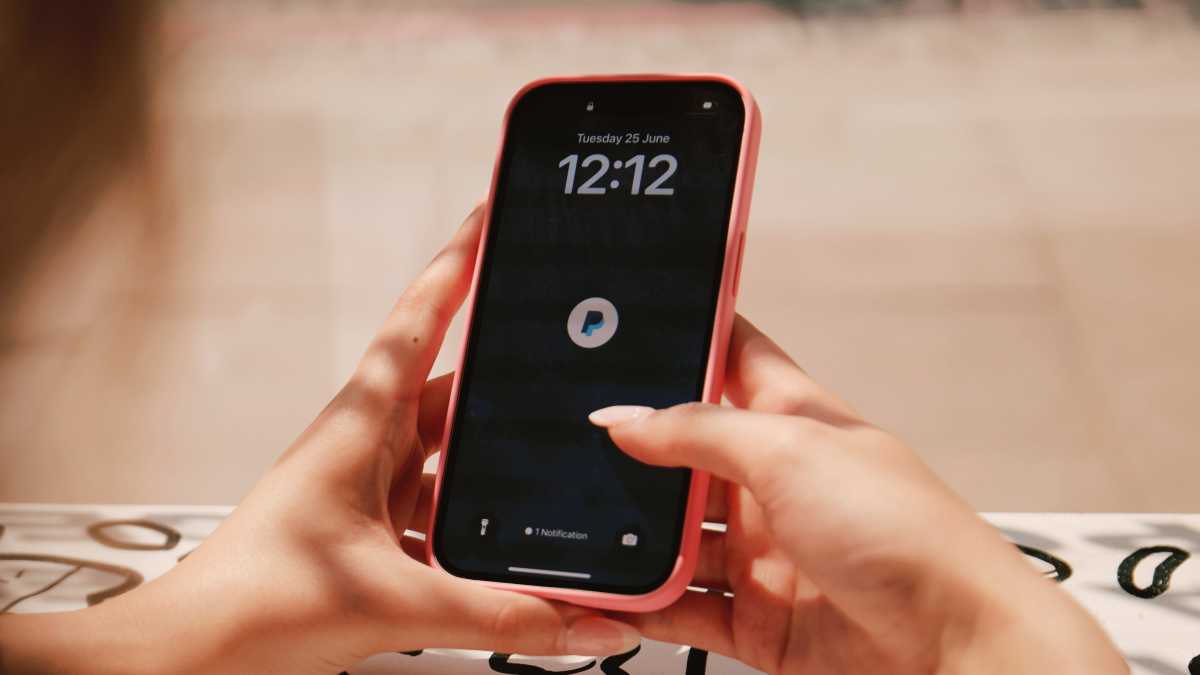
PayPal
And, if you link your PayPal to your bank account, the process of sending money and withdrawing it is totally seamless. There are loads of other features in the PayPal app, but this basic functionality makes it almost indispensable for me.
Instapaper
When I heard that my favourite read-it-later app, Pocket, was shutting down, I was really frustrated. After all, I’d spent the last few years building a collection of interesting articles from across the web, and I really didn’t want to lose them.
Luckily, moving them all over to rival Instapaper was simple and only took a few minutes. After creating an account and logging in to the app and Google Chrome extension, adding new articles that were accessible across all my devices became a piece of cake.
And if you own a Kobo e-reader, it’ll soon get even better. Kobo has announced a partnership with Instapaper that, later this year, will allow articles to be synced automatically with all Kobo devices, just like you could with Pocket.
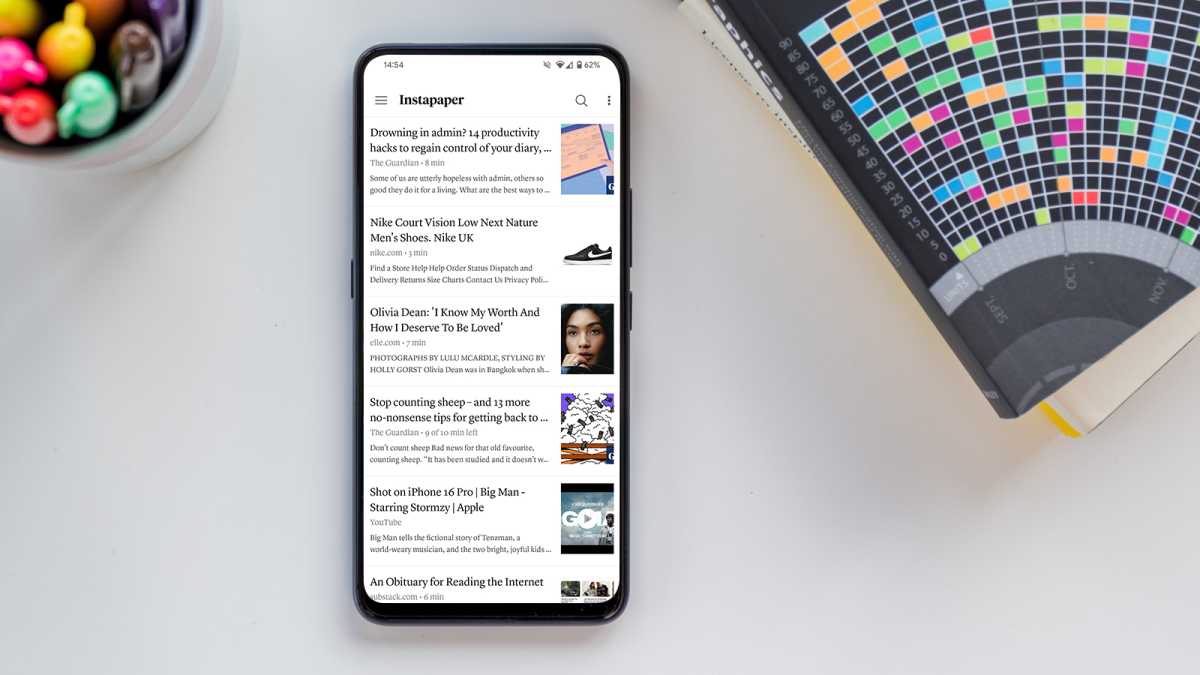
Dominik Tomaszewski / Foundry
Sadly, I have a Kindle instead, but I’m already getting a lot of benefit from the free plan on my phone and laptop. Instapaper Premium adds a powerful search feature, permanent article archive (even if it’s taken offline) and unlimited notes for £5.99/$5.99 per month or £59.99/$59.99 per year, but I don’t think it’s worth it for most people.
And, if you’re concerned about it potentially being owned by Meta, don’t worry. Despite the name, Instapaper is not affiliated with Instagram in any way.
Bandsintown
Live music is one of my favourite hobbies, but keeping track of all the artists that I want to see can be a pain. There are only so many email newsletters you can sign up for before your inbox becomes a cluttered mess.
Luckily, I’ve found a solution in the form of Bandsintown. As the name suggests, it lets you know when bands (and solo artists!) are playing a show in your area, notifying you every time a gig is announced.
Previously, I used Songkick, which works very similarly. But I found it was often a day or two late in notifying me, by which time the tickets had sometimes gone on sale. By contrast, Bandsintown consistently lets me know within hours of the official announcement.
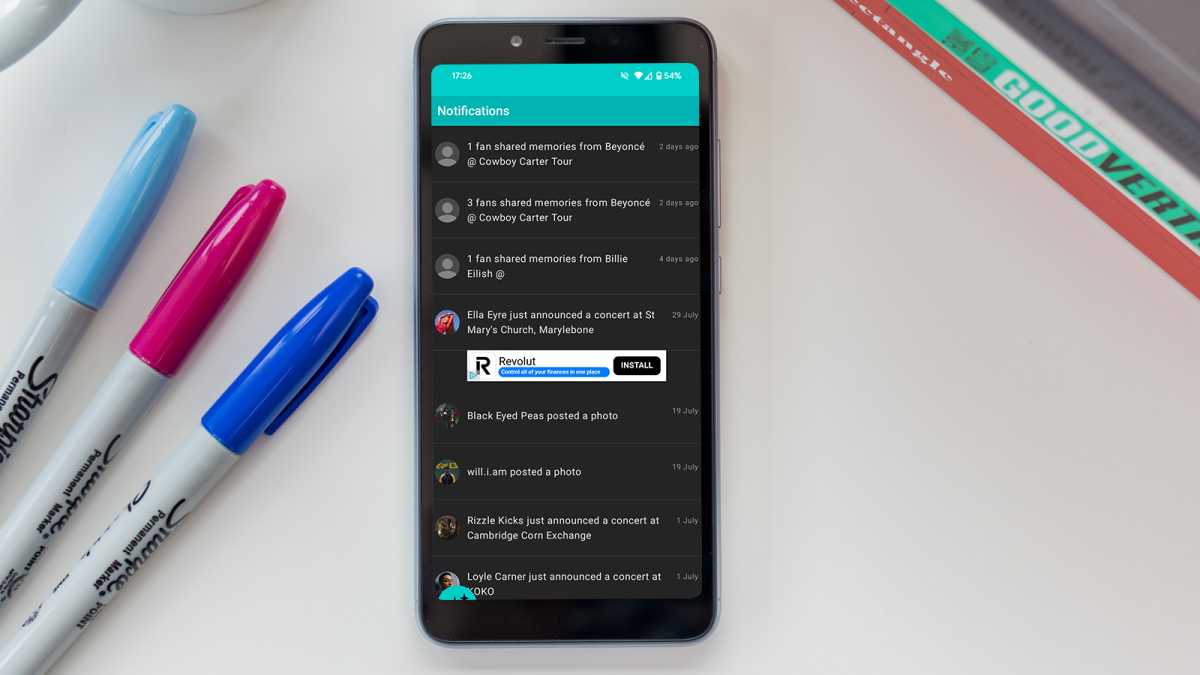
Dominik Tomaszewski / Foundry
The app isn’t perfect – a couple of months ago, six artists that I follow were announced for ‘Plein Air’, despite no evidence of an open-air concert – but it does a great job more often than not.
Libby
I’ve had a library card for a few years, but have never been able to build a consistent habit of borrowing books, despite currently living just a five-minute walk away.
Reading digitally has always been more convenient for me, with downloads to my Kindle ready to read in seconds. I’ve often looked enviously at Kobo, which lets you borrow e-books directly on its e-readers.
However, as it turns out, I could still benefit from a lot of free digital content using my library card and the Libby app. A wide range of e-books is joined by a solid selection of audiobooks and some of the biggest magazines around the world. A dedicated article view makes the experience much more intuitive than reading a PDF.
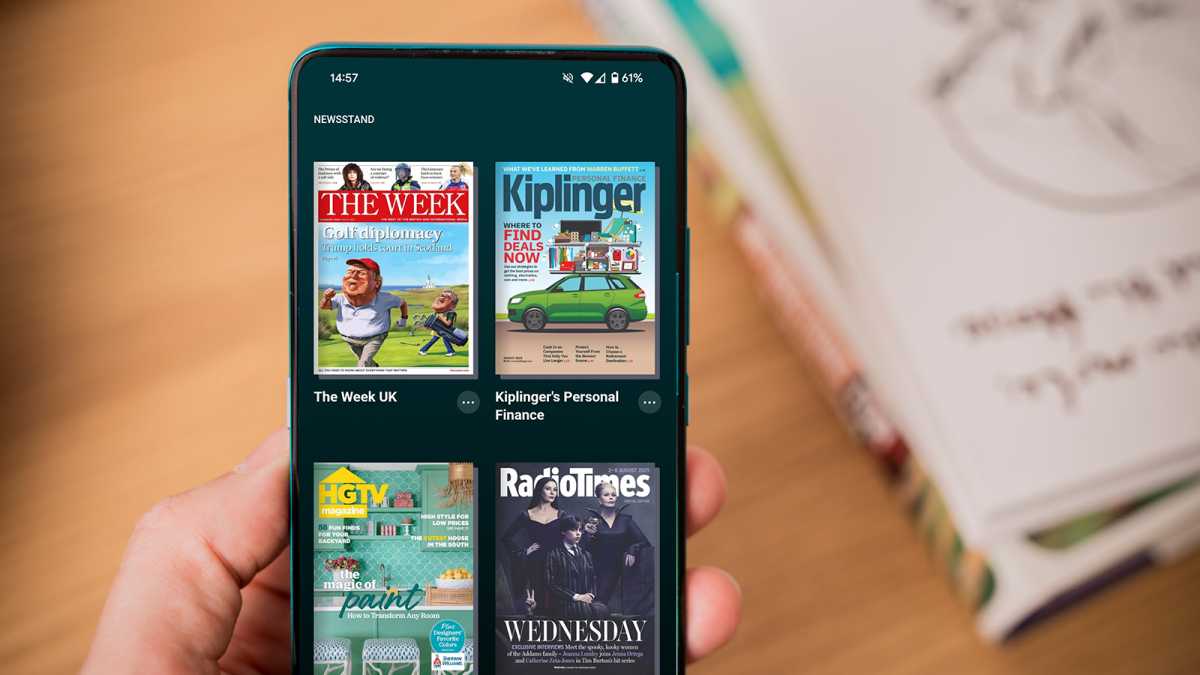
Dominik Tomaszewski / Foundry
For even more content, you can link your library card to the PressReader app and access a digital version of many newspapers. It really is a treasure trove of free content.
Meetup
After moving to a new city last year, I didn’t know many people. And, as someone who lives alone and works from home, the traditional methods of meeting new people don’t tend to work, so I turned to Meetup.
Essentially, it’s a social media platform dedicated to meeting new people and trying new activities. And while there are plenty of virtual events, it’s the in-person aspect that appeals to me the most.
Luckily, the city I’d moved to has a vibrant scene on Meetup – I recognise that this isn’t the case everywhere. Within a few minutes, I’d joined around a dozen groups that appealed to me, with activities including a pub quiz, language exchange, riverside walks and pool.
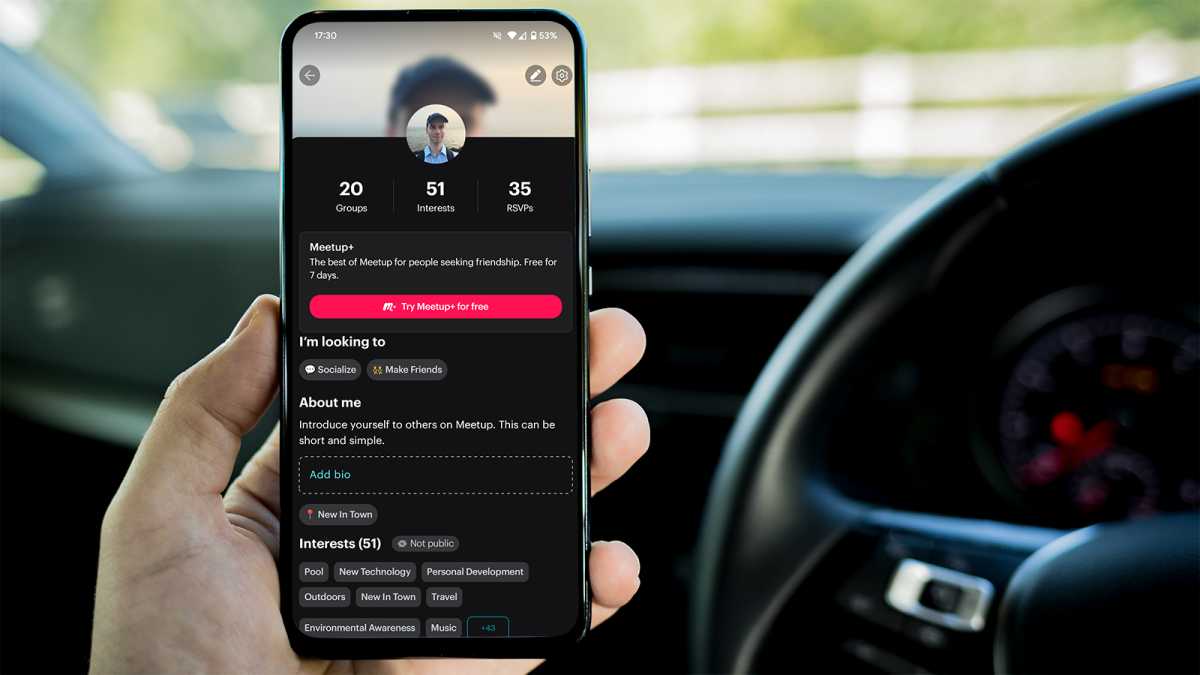
Dominik Tomaszewski / Foundry
I’m not going to lie, committing to turn up to one of these events was daunting, especially the first time. But I never regretted it, and often had a really positive experience.
Now, almost 18 months later, I have a vibrant social life with other locals. Meetup has played a big role in that. The company aggressively promotes its premium subscription, especially on the mobile app, but it’s really not necessary for most people.
HappyCow
As a vegetarian, it can sometimes be hard to find food I can eat while out and about, especially when travelling to an unfamiliar country. Google Maps has historically been my first port of call, but that often leads to a lot of time wasted trawling through menus. And does the overall rating even reflect the quality of the vegetarian options?
Luckily, there’s an app that allows vegetarians and vegans to find exactly what they’re looking for. HappyCow works similarly to a Google Maps search for ‘restaurants’, except only those which have meat-free options are displayed.
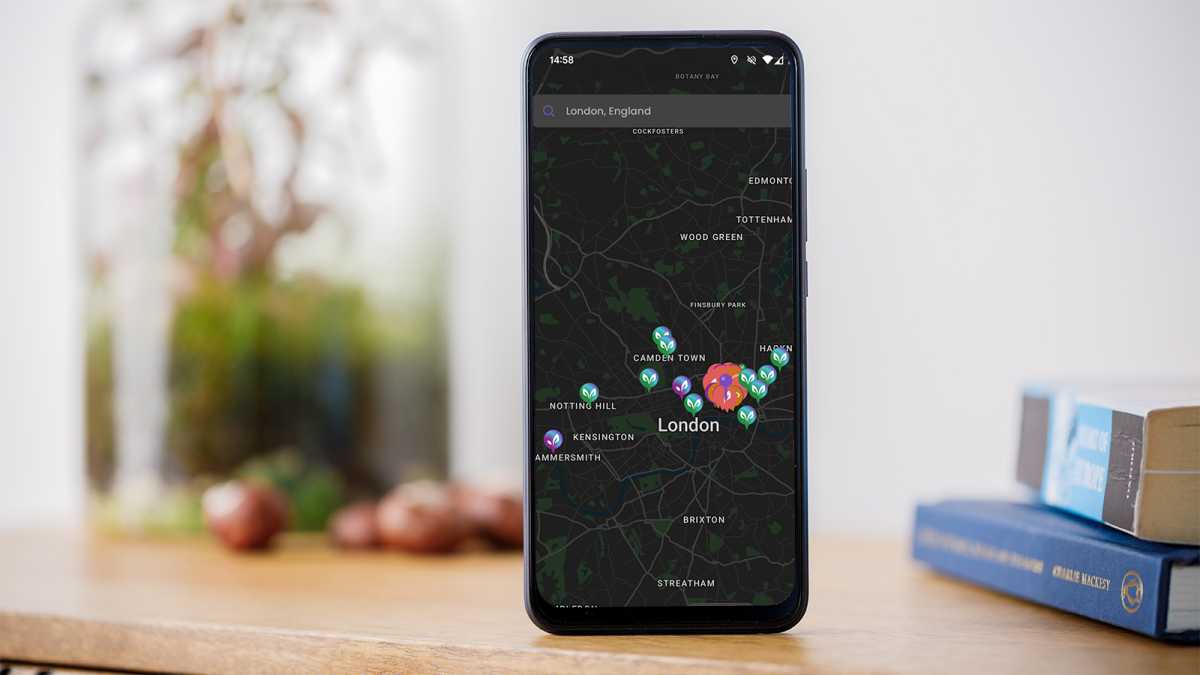
Dominik Tomaszewski / Foundry
Within the app, you can choose whether you’re looking for a dedicated vegan or vegetarian eatery, or just one that has suitable options. There’s an impressive range of filters available, plus reviews and the option to add places to a saved list. You can even connect with other users via the ‘Community’ tab, although I haven’t tried that yet.
Rocketbook
I often flip-flop between taking physical and digital notes. I prefer the experience of pen on paper, but the convenience of notes that can be easily accessed from anywhere can’t be denied.
The Rocketbook is the best hybrid solution I’ve found so far. Using one of their smart notebooks, I can make physical notes using a special pen, then scan them using the Rocketbook app and save them anywhere I like (my preference is Google Drive).

Dominik Tomaszewski / Foundry
More recently, Rocketbook has added OCR support, allowing you to convert these handwritten notes into text and make them easily searchable, though I haven’t tried this.
Even in its most basic form, Rocketbook is an easy way to digitise my handwritten notes. And when you’re done, the pages can be wiped clean with a damp microfibre cloth, meaning you don’t create lots of paper waste.
These seven apps significantly improve my quality of life, but they barely scratch the surface of great options out there. If none of the ones I use appeal to you, I’d encourage you to be curious and find out which new apps might be out there for you to discover.

